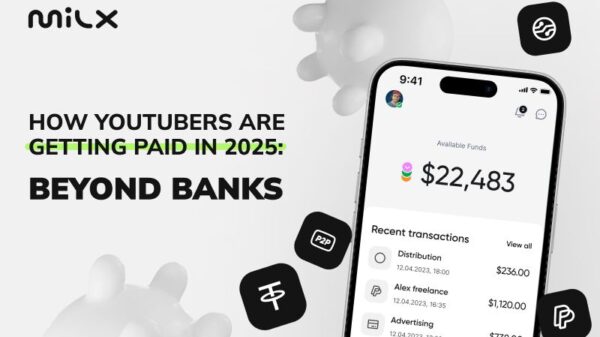EVERY YEAR comes with its own unexpected twists for financial markets, but 2021 has been jam-packed with them. Here are some of the developments that took investors, companies and analysts most by surprise this year, and what they mean for 2022. Supply-chain disruptions Paul Samuelson, a Nobel-prizewinning economist, once joked that the stockmarket had predicted nine of the last five recessions. A similar charge could have been levelled against the analysts who regularly fretted about major supply-chain disruptions—until now. The onset of the pandemic in early 2020 was strikingly free of serious snarls, beyond the fact that personal-protective equipment was in short supply for a time. By contrast, this year has been marked by extensive shortages and surging supply-driven inflation. Drewry, a supply-chain consultancy, constructs a measure of the average cost of shipping a 40-foot container across a range of routes. This reached a peak of $10,377 in late September, quadruple the level a year earlier. Disruptions to factories and ports in China and South-East Asia, driven by governments’ efforts to smother covid-19 outbreaks, did not help matters. But the lion’s share of the tumult can be attributed to explosive demand for physical products: spending on durable goods has risen by 34% in America since the beginning of 2020, compared with an increase of nearer 4% on services. As the pandemic recedes, that gap should narrow. But supply chains may remain squeezed for some time relative to pre-covid norms. Chinese markets upturned The established order in Chinese financial markets was upended this year, too. For the best part of a decade, investors clamoured for greater access to Chinese assets, with the country’s booming tech sector regarded as particularly alluring. But a regulatory crackdown in 2021 has left the MSCI China Tech 100 share-price index down by nearly a third since the beginning of the year. The stock price of Alibaba, an e-commerce giant, has fallen by almost 50% over the same period. Evergrande, a huge property developer, had long been the most extreme symbol of China’s heavily leveraged real-estate sector. In 2021 it at last defaulted, in the face of a government effort to throttle borrowing by developers. How the regulatory campaigns proceed depends on China’s opaque politics, which will be dominated by the Communist Party Congress towards the end of 2022. But the shakedown of both the tech and property sectors has made clear that investment performance in China can still turn on a dime if the government’s mood shifts. The earnings bonanza Analysts and investors expected a revival in earnings in 2021—after all, things could hardly have been worse than last year. But the scale of the recovery has beaten almost all projections. In late December 2020 the consensus expectation was for a 22% increase in earnings per share on the S&P 500, America’s benchmark stock index, in 2021. Fourth-quarter earnings are still to be announced, but the estimate for growth in the year as a whole is now 45%, stronger even than the 40% rise in 2010, after the global financial crisis. This is partly down to a faster economic recovery than expected, with companies’ earnings surpassing not just their 2020 levels but their 2019 levels, too. That puts stockmarkets in a more difficult spot as 2022 begins: some of the economic recovery that had previously been expected to take place next year may already have happened. Analysts expect a much more muted rise in the earnings of S&P 500 companies, of 9%. Beating forecasts by a large margin again next year will be a tall order. And with the index still priced at more than 20 times expected earnings, that might limit how far prices can rise. Public v private For much of 2020, bankers moaned about the difficulties of operating in a pandemic. But if the fewer physical meetings with clients, the lack of roadshows for initial public offerings and the uncertainty of the economic outlook have had deleterious effects, they are hard to find in the data. In the first 11 months of the year listings in America raised $147.8bn, more than twice the amount raised in the same period in 2020. Although the surge was most pronounced in the early months of the year, activity is still buoyant as 2021 draws to a close. The boom casts some doubt over the idea that public markets are being inexorably supplanted by private capital. The power of banks over the listing process may be ebbing, as companies going public can now opt for direct listings, or mergers with special-purpose acquisition companies (SPACs). So far in the fourth quarter, 621 companies have gone public worldwide—including through SPACs—a 16% increase over the past year. The wave of flotations suggests public markets are not out for the count. Green finance Executives and investors keen to appear environmentally friendly have sometimes been objects of derision in recent years, and green finance in general has been regarded with (often justified) scepticism. But this year has seen concrete developments. Green government bonds have flooded the market, with at least 20 countries issuing such debt this year. In mid-October the European Union issued its first green bond, selling €12bn-worth ($13.6bn) to enthusiastic investors. Perhaps the most interesting developments have come from the private sector, though. Investment in climate-tech startups reached $60bn in the first half of 2021, more than triple that in the same period last year. There has been a huge surge of investor interest in electric-vehicle firms, from Tesla to CATL, the world’s leading battery-maker. Meanwhile, in May ExxonMobil lost a proxy battle against activist investors, who voted more climate-friendly directors to the oil firm’s board. And the oil majors are among the companies exploring hydrogen technologies. Finance will struggle to be truly green without a widespread carbon price. But the sector emerges from 2021 looking more mature and serious than when the year began. ■

















